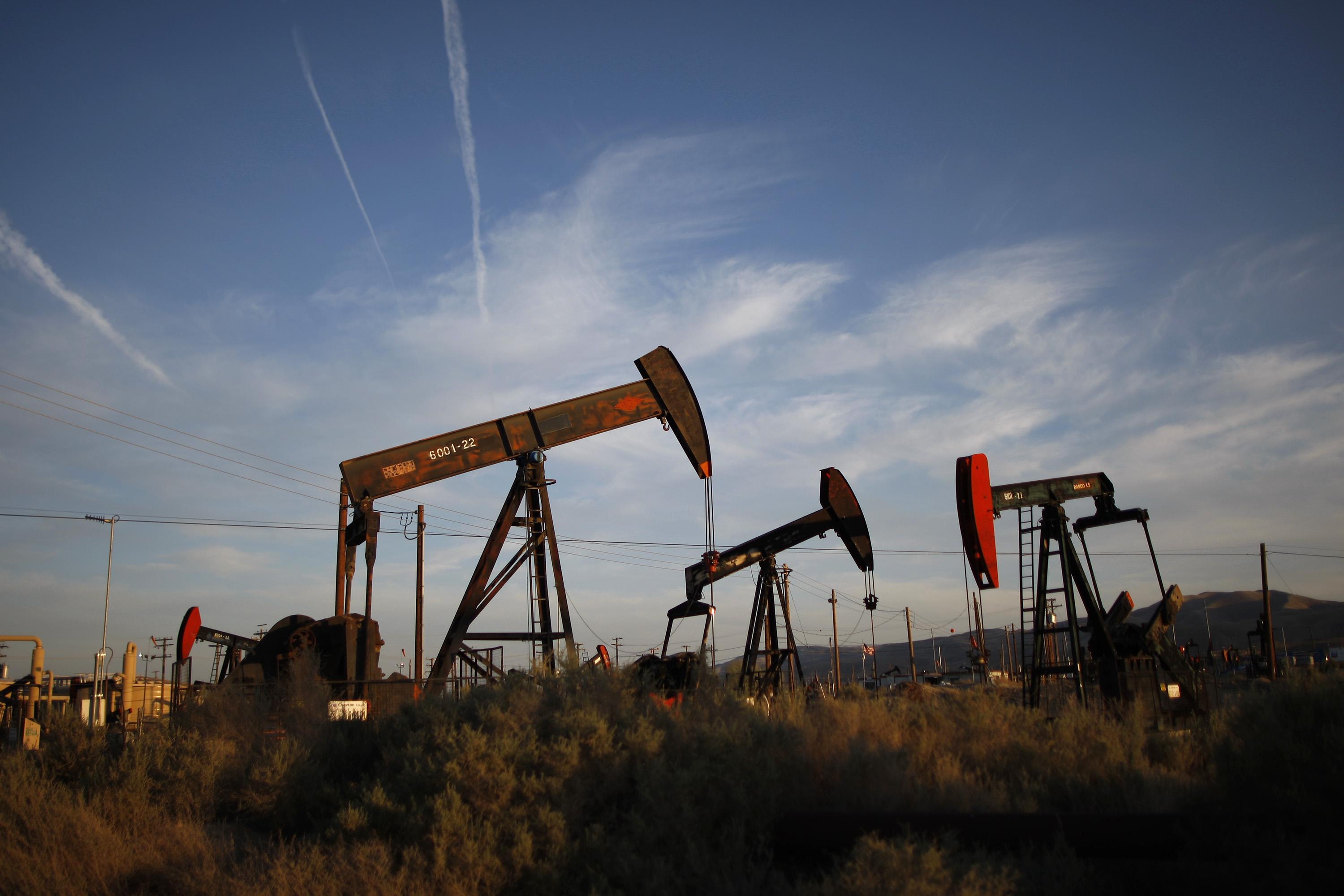Making predictions about the price of oil is sort of foolish. Remember peak oil? Or all the people, myself included, who thought it was impossible for the U.S. to drill its way to lower prices? But since it’s the end of the year, which is nothing else if not a time to make assertions that will probably be proven wrong at a later date, I’m going to go ahead and say we can all look forward to a year of cheap gasoline in 2015 as the price of oil stays low.
Crude is inexpensive right now—the cost of a barrel is down about 46 percent this year—because the world has a glut of it, mostly thanks to the American fracking boom. That glut will only disappear if economic growth heats up enough to increase demand, or if drillers pull back on production enough to meaningfully decrease supply. As of now, it doesn’t look as if demand will do the trick. Much of the world is stuck in an economic muddle, and the U.S., while healthier than most countries, probably isn’t heading for some sort of breakout year. The International Energy Agency has been revising down its estimates of how much oil the globe will consume in 2015, and right now believes that, overall, its appetite will only increase by around 0.8 million barrels per day. That’s not much.
What about supply? At the moment, there’s no clear sign it will be tightening. Oil really started crashing after Saudi Arabia—long the world’s swing producer, capable of lowering or raising its output to stabilize crude’s price—declined to cut production to put a floor under the market. Instead, the country wants to protect its market share while low prices wreak havoc on competitors, like those pesky American drillers fracking shale in Texas and North Dakota, who have higher production costs. The country’s oil minister has said he’s perfectly comfortable if prices fall down to $20 a barrel if it means curbing future drilling elsewhere. Per the Financial Times:
Although Saudi Arabia still desired higher oil prices, a period of lower prices was needed to induce demand and spur a pullback in spending and exploration from the world’s biggest oil companies, he said.
“Brazil’s sub-salt wells, west African wells and Arctic wells are high cost. So sooner or later, however much they hold out, in the end, their financial affairs will limit their production.” This would sow the seeds for a price recovery.
In other words, Saudi Arabia is going to sit tight. At the same time, it’s not clear how much, or how fast, global production will actually slow. Offshore wells in places like the Arctic and Africa are long-term investments that wouldn’t produce much crude for a while anyway. If the Saudis can put a quick dent in production anywhere, it would be in America’s shale regions, where wells deplete quickly, and companies might not choose to drill new ones if they suddenly seem unprofitable. But this month, the U.S. Energy Information Administration said it still expected U.S. output to increase next year, despite terrible prices. It might be right. It might be wrong. But the point is that all those frackers in North Dakota and Texas aren’t obviously shouting uncle yet. If Saudi Arabia is playing a waiting game, it could be a long one.
There are lots of unknowns here. For instance, there’s always a chance that instability in the Middle East will slow down the flow of oil (Libya’s production is especially vulnerable right now). Maybe the low price environment will turn so economically disastrous for Russia and Venezuela, which desperately need oil profits to stay economically afloat, that they’ll agree to cut their own production (if that happens, there’s even a chance Saudi Arabia might bend). But given what we know right now, it seems like there’s a good chance cheap oil will continue to be a happy story in the new year.
